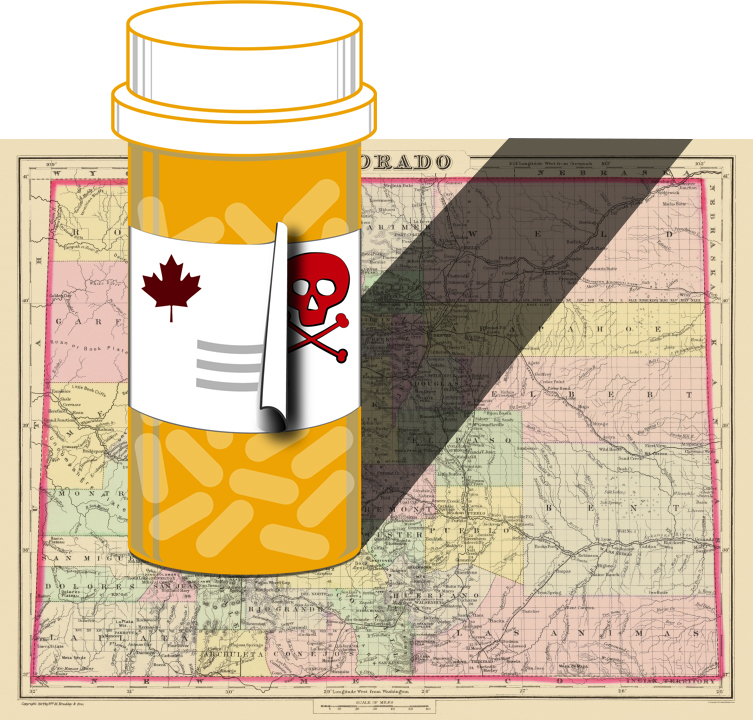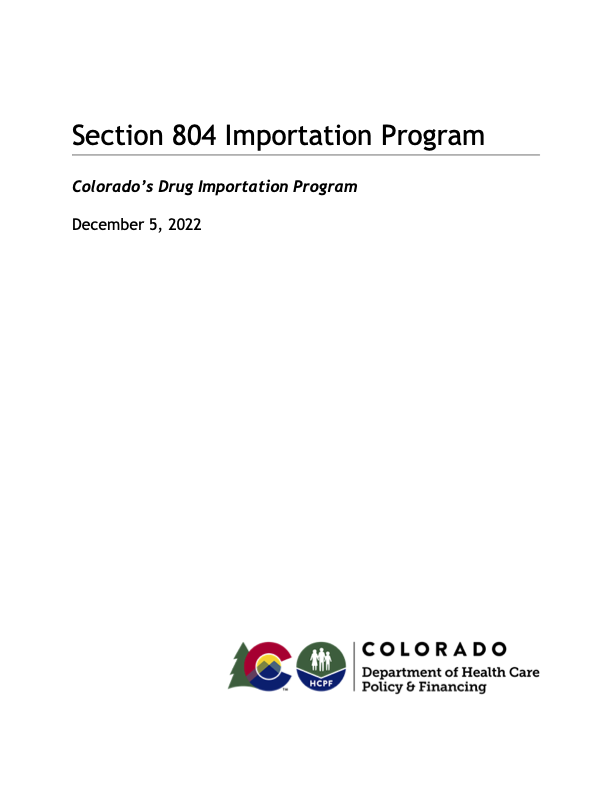Colorado’s Canadian drug importation plan won’t be safe and also won’t save money
On December 5, 2022, Colorado formally submitted its application to the FDA to import medicine from Canada. We’ve gone on the record many times as to why we think that’s not safe or likely to save money and we’re not alone: former FDA commissioners, including Robert M. Califf, who returned to lead the FDA this year, agreed with us.
Canada has a significant problem with drug shortages, which means we’re likely to get counterfeits.
Two of the drugs included in Colorado’s application are currently in shortage in Canada: cyclosporine and varenicline. Four other drugs already experienced periods of shortage in Canada in 2022. In 2017 and 2018, shortages affected nearly 25% of drugs marketed in Canada. Patient advocates, pharmacist groups and even the Canadian federal government have all weighed in against U.S. states looting their medicine supply.
Why do we care if Canadians have drug shortages because of Colorado's importation plan? We learned during the pandemic that when you try to go outside normal supply chains to buy medical products in short supply, you will always get ripped off. Fake N95 masks alone cost U.S. states enormous sums of money and most of the foreign sellers who defrauded us were not prosecuted.
Now, imagine that same problem, but with HIV patients getting substandard medicines.
Colorado continues to underutilize generic U.S. medicines which could save Colorado millions today.
Colorado proposes importing brand name medications when therapeutically equivalent, cheaper FDA- approved generics are available.
For example, Colorado could lower its per-unit price for 500 mg Zytiga from $179 per pill to $10 per pill by asking patients to take two 250 mg pills of Zytiga’s U.S. generic, abiraterone. Since the state’s draft proposal in 2020, they’ve dropped Truvada, which treats and prevents HIV/AIDS, from the list. Why? Because enough new generics for Truvada have come out that have dropped the price.
That’s the strategy that works (and that we’ve urged repeatedly). Colorado patients would be well served by the state trying to encourage the proliferation of generics, because that demonstrably saves Colorado patients money.
Colorado has dismantled many of the safety checks in the drug supply chain.
Perhaps you have heard of the Drug Supply Chain Security Act? The system that attaches a unique serial number to every unit of medicine when it’s manufactured and is then tracked by every trading partner on the way to the pharmacy shelf? Well, the medicine Colorado is proposing to buy won’t have those serial numbers; we’ll have to take their foreign seller’s word for it when it claims that it is providing real medicine.
Colorado claims that the foreign seller they are contracting with will “ensure, through purchase agreements for each eligible drug, that manufacturers supply comprehensive documentation that includes all required information to appropriately track and trace an imported drug back to its origin.” (page 37) But just saying “track and trace” doesn’t make a system secure, any more than saying “I can sing like Adele” makes me a talented vocalist.
Why are we concerned?
Colorado went to a lot of trouble to show that this program is going to save millions and millions of dollars, and they’re about to use that justification to spend real Colorado taxpayer money for an importation program. The state already determined that importation won’t save money for its Medicaid recipients.
Colorado legislators would do well to claw back any money given to this program before it goes out the door. Florida Governor DeSantis’ Canadian drug importation program has already spent over $30 million and they haven’t imported one single pill. Florida taxpayers will never see that money again. Colorado taxpayers shouldn’t fall for the same trick.
Learn more about Colorado's importation efforts.
Review Colorado's final application and appendices.

